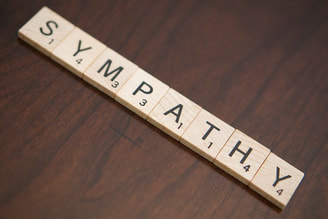
I find that people struggle to find the right words to write a truly appropriate condolence message. But it's not your mastery with words that's important; what are truly memorable are messages that come from your heart.
In the weeks following my mom's death, I received many condolence notes that brought me comfort. I thought I'd share some of the qualities that made these messages special.
1. Memories are all we have left when a loved one dies and it's wonderful to hear someone else's perspective of our loved one. One friend shared: "Your mom was always so fun to speak with. Many from her generation tell the same stories over and over but your mom had so many interests and travels, I loved to visit with her."
2. It can be insightful to hear how others viewed your family member. My cousin shared: "I always thought it must have been so much fun growing up in your family. You always seemed to be such an active and involved bunch. I can only imagine what a great teacher your mom must have been because she had such a keen interest in so many things."
3. A friend made me feel better for feeling so bad. She shared: "It is always difficult to lose your mom, no matter what your age."
4. And someone from my book club who was not an intimate truly touched my heart when she referred to my mom as "Your dear mother."
Robbie Miller Kaplan is an author who writes from a unique perspective as a mother who has lost two children. She has written How to Say It When You Don't Know What to Say, a guide to help readers communicate effectively when those they care about experience loss, available in ebooks for "Illness & Death," "Suicide," "Miscarriage," "Death of a Child," "Death of a Stillborn or Newborn Baby," "Pet Loss," "Caregiver Responsibilities," "Divorce" and "Job Loss." All titles are in Amazon's Kindle Store.









 RSS Feed
RSS Feed
